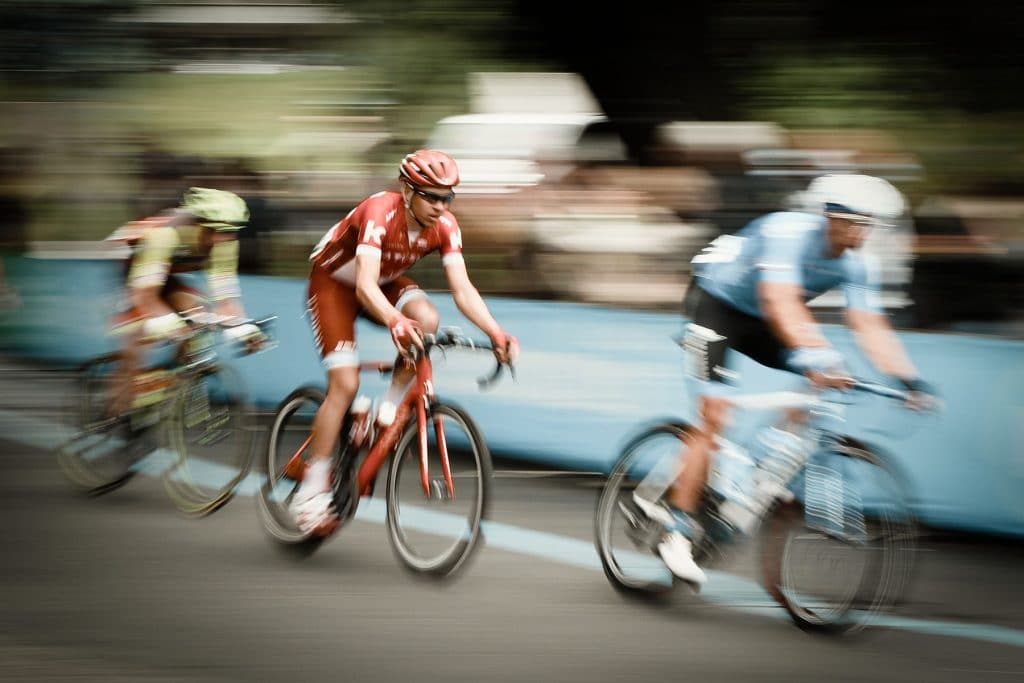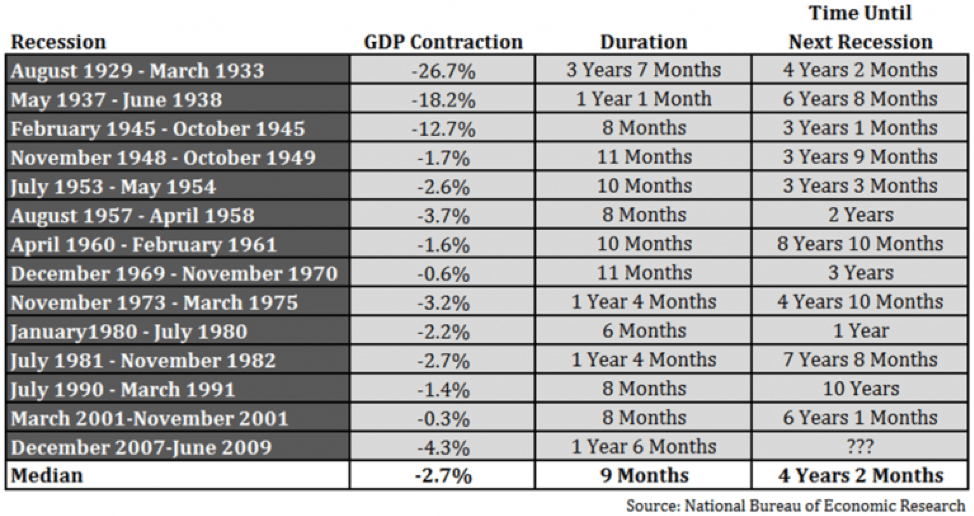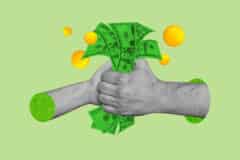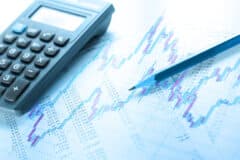Written by: Dennis McNamara
For the second year in a row I am a daily listener to Lance Armstrong’s podcast covering the 2019 Tour de France. As a race, the Tour’s terrain is always full of variety: flat stages, mountainous stages, and even stages with miles of cobblestones. As someone who has experienced the trials and tribulations of le Tour firsthand, Lance is rarely one to try and predict a winner. As an evidence-based investor, you also know how futile market predictions can be.
As a rider, like an investor, we can only control our actions. Riders have no control over the terrain, the weather, or the dense crowds (eh-hmm, hooligan fans) lining the roads. As an investor, we have no control over the amalgam of forces that create positive/negative market returns (i.e. geopolitics, interest rates, currency risk etc.). Even when being pragmatic with all of the things that are in our control, we are never free from setbacks. This brings us back to the point of this article: recessions.
Looking at the chart below, we see that recessions occur roughly every four years. Given that our last recession was in 2009, it would seem that we’re due. When? Good luck guessing that one. All riders in the Tour know that there will be crashes; it’s simply a matter of when. As an investor, we need not forget that like crashes on the Tour, recessions are also a matter of when.
Market growth is not something that can continue indefinitely, economies need recessions to filter out the poor performers and allow opportunity for new entrants. In the Tour de France, how riders navigate the setbacks and challenging times can often be indicative to their overall performance. As an investor, those with the guts and capital to make purchases during a recession are the winners (i.e. buying depressed assets at a discount). Warren Buffett once shared the sage advice to “be fearful when others are greedy, and be greedy when others are fearful.” I’d have to ask Lance, but I feel like this holds true in both our financial markets and the Tour.
For those planning to retire or begin drawing down their assets in the near future (within the next 1-5 years), portfolio management can become a bit more nuanced. In short, it’s imperative to set aside at least a few years of living expenses in safe investments (i.e. short-term bonds with high credit quality). Why? Having these funds on the sidelines during a recession will allow you to ride out the market tumult, to not sell your equity positions out of necessity, and to be patient in waiting for the market recovery.
Aside from your portfolio allocation, the other area within your control as an investor (and arguably even more important) is your spending. If a Tour de France rider exerts all of his energy on the first mountain incline, how will he fare later in the Tour? Depleting too much energy too early in the Tour would be short-sighted and result in lackluster performance. Now, think of that same rider who exerted too much energy too early that now faces an immense challenge that is beyond his control. Good luck Chuck.
As an investor, depleting too much of your portfolio too early could have even more dire consequences than a cyclist overexerting themselves. In the event of a recession, those who rely on their portfolio assets for monthly/annual cash needs may be fine if maintaining a lifestyle within their means. However, for those living above their means, this perfect storm of a recessionary market combined with overspending will deteriorate a portfolio quickly. Trying to tighten your spending during a recession is fine, but for those in later stages of life who are already drawing down their assets for living expenses, decreased spending during a recession could be a case of too little too late.
Regardless of life stage, having a properly allocated portfolio and being conscious of your cash inflows and outflows is crucial to know in advance of a recession. Like a competitive cyclist, focus on what you can control. Whether cycling or investing, always work to be in a position of strength. If questions, contact us for a review so that when the sky is falling and market analysts cry catastrophe, you can kick back and enjoy the lighter things in life – like the Tour de France.







